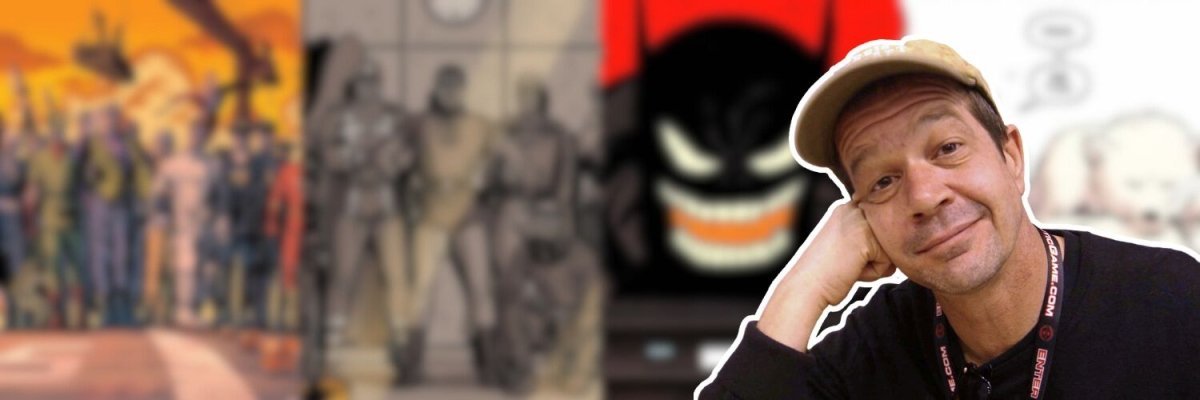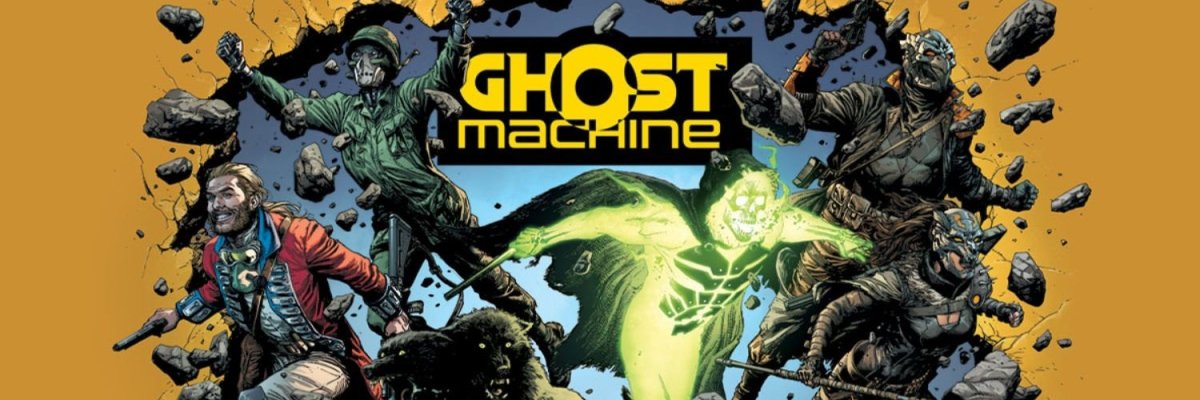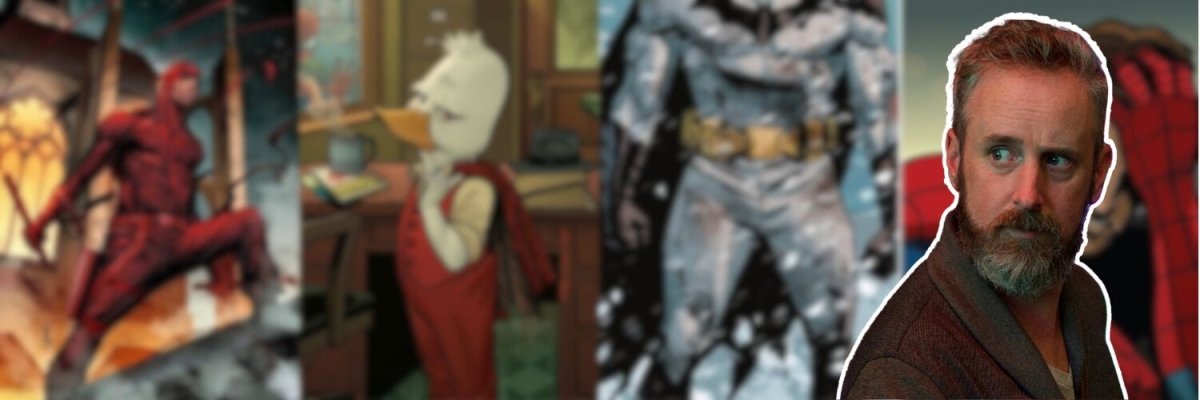F4F: Reed Richards a.k.a Mr. Fantastic.
We’re counting down to the Fantastic Four movie here at Walt’s, and instead of spotlighting the team as a whole, we’re diving deep into each core member—one at a time.
Fantastic Four fans used to pray for times like this, when being obsessed with Marvel’s First Family wasn’t just a niche thing, it was something both we and Marvel are fully celebrating. These pieces are meant to be long-form love letters, breakdowns, and discourses on key moments that define each character, and why we love them so much.
So let’s do it. Welcome to Walt’s Beyond the Panel – F4F!
Reed Richards is always thinking.
That might sound obvious for one of the smartest minds in the Marvel Universe. But here’s the twist: living inside a mind that constantly runs through infinite permutations can leave you painfully unaware of the world happening outside of it.
And that world? It’s the one he’s trying to save - obsessively. That’s the brilliance of Reed. No solution comes without a cost. No act of genius happens without emotional consequence. He can save a million lives and, in the same breath, damage a relationship with someone he loves. He’s logic wrapped in guilt.
The key to understanding him is this: Reed could probably have or do anything he sets his mind to. And yet, he chooses his family, though rarely by the easiest path.
He’s a genius with the weight of the world on his shoulders… and at the same time, he’s just a man who loves his family.
Oh - and yeah, he stretches too.
Here are some of the Beyond the Panel team favorite moments:
"Science Man vs. Cosmic Truth" by Matheus
Fantastic Four - The Galactus Trilogy

Look, a lot has already been said about The Galactus Trilogy (Fantastic Four #48–50). And for good reason. These aren't just some of the most important comics of the Silver Age - they might be the most important comics, full stop. Stan Lee’s endlessly expressive narration pairs with Jack Kirby’s galaxy-shattering artwork to create a story that still lands like a thunderclap, even decades later.
The themes here couldn’t be more perfectly tuned for Reed Richards. And while others have offered brilliant interpretations - and no doubt will continue to - this story is essential. If you ever need to explain what a Fantastic Four comic should be, this has to be part of that definition.
Here, we’re introduced to Galactus: the devourer of worlds, a cosmic constant, an entity as inevitable as gravity. He’s not evil in the traditional sense - his hunger is a force of nature, an act of survival that doubles as mass extinction. It’s terrifying in its cold neutrality, a balancing act of the universe that no one, not even the characters within the story, can fully comprehend.
And then there’s Reed. The scientist who stares into the impossible and dares to challenge it. A man of logic, yes, but also driven by a relentless curiosity - a refusal to accept limits, no matter the cost. The brilliance of this trilogy lies in what happens when these two collide.
Galactus and Reed aren’t just characters. They’re philosophies. One is unwavering in his role as a cosmic fixture. The other refuses to stop reaching, fighting, questioning. What do you do when you're up against something that simply is? What happens when unstoppable will meets immovable purpose?
The Galactus Trilogy is collected in Fantastic Four Epic Collection Vol. 3: The Coming Of Galactus TP (New Ptg)
Fantastic Four by Lee and Kirby

Lee and Kirby’s Reed shaves his beard. It’s such a minor thing, barely worth a panel, and yet - it’s the moment I can’t stop thinking about. Faced with an existential threat, Reed acts and looks like everything depends on him - because, in his mind, it does. And let’s be real: he kind of loves reminding everyone of that.
He snaps at Sue multiple times - one of the harder aspects of Silver Age Fantastic Four to stomach - but even that has its place. It builds this image of a man crushed under the weight of responsibility, yet completely blind to how he wields it. He’ll save the world, sure. But in doing so, he just might lose his own.
There’s something deeply honest in that portrayal. It’s a cutting commentary—whether deliberate or not - on men of the 60s, or really, men of any era. The guy who, in his frantic need to be good, to protect, to provide, becomes careless, distant, emotionally unavailable. He means well. That’s the tragedy.
But Reed will learn. He’ll grow. He’ll go against his nature.
So is Galactus. He, too, fears losing everything. That’s the real punchline behind the Ultimate Nullifier gag: be who you are, fulfill your nature, bask in it even, but the moment you truly do, everything could end. That’s what Reed will come to understand as he evolves, when he finally starts to look beyond equations and into people.
And here’s the beautiful irony: Reed only even gets the Nullifier because of the people around him. His friends. His family. The ones who, while he’s off calculating the odds, are out there moving the pieces into place. It's their actions, not just his intellect, that give him the chance to make the play. And that’s not even touching the Silver Surfer’s entire turn, catalyzed by something as simple, and as profound, as a conversation with Alicia. Nature shifted by empathy. Power changed by understanding.
It’s all so elegantly done. Sure, by today’s standards it might read as simple, but this made the characters, defined the title, and laid the foundation for the house of Marvel itself.
And still, before all of that? Before facing a god, before gambling with reality? Reed shaves. Of course he does. Because he’s Reed Richards, and in his mind, the solution is always within reach. They will find it. He will find it. He has to.
Reed doesn’t win because he hits the hardest or yells the loudest. He wins because he sees the angle no one else even knew existed. Because deep down, he believes the mind can overcome the infinite. That even against the impossible, there’s always an answer - if he can just think hard enough.
But the price of genius is knowing: there’s always another problem waiting. Always another challenge looming just past the horizon.
You can get this arc in a few different ways. One is through the usual Marvel Epic collections
or:
- Fantastic Four By John Byrne Omnibus Vol. 2 HC
- Fantastic Four By John Byrne Omnibus Vol. 2 HC [New Printing, DM Only]
You can start by buying the Fantastic Four Omnibus Vol. 1 (2025) reprint and just dive into the whole run because it is that essential!
Fantastic Four by John Byrne
Byrne's Reed makes judgments, on everything and everyone, but mainly on himself. And he will be judged for it. John Byrne's contribution to Galactus and Reed is probably the most significant next to the original team. The whole thing starts to unfold in Fantastic Four #242–244, when Terrax, a former Galactus herald scorned by his master’s indifference, returns to Earth to, of course, bring the fight back. He gives the team a mission - or really, an ultimatum: destroy Galactus, or I destroy everything you love.
“Kill this guy or I kill everything you love,” essentially.
That’s the conundrum Byrne introduces, an expansion of the first. But there’s a cruel irony at play here.

Galactus - the godlike force feared across the cosmos - isn’t the all-powerful terror this time. He’s starving. Dying. The Devourer of Worlds, reduced to a husk of what he once was. And Byrne raises the stakes even higher: he brings in the Avengers. The big names. The big villain. The big crossover moment.
And then comes Reed. Standing at the crossroads of logic and morality. To everyone else, the choice is obvious: let him die. The Avengers, Doctor Strange, even some members of the Fantastic Four, they don't hesitate. But Reed does. He’s the one who makes the leap no one else can. They’re heroes. So, they save him.
But is saving a cruel cosmic entity really a hero’s act? Or is letting him die, letting nature take its course, the more righteous path?
Reed understands something the others can’t or won’t see. He sees the cost of balance, the burden of power, and the uncomfortable truth: even Galactus has a place in the cosmic order.
Reed makes the call. They save Galactus.
This isn’t a clean victory. Saving a cosmic being comes with consequences. Galactus repays the debt in the only way he knows how: by choosing a new herald. Frankie Raye. She accepts, embraces, the power, the responsibility. And in an instant, she’s gone. Just like that. Off into the stars. And Johnny Storm, her boyfriend, is left behind. Heartbroken. Powerless.
And that’s the thing about Reed Richards. He’s not just the guy who solves the problem. He’s the guy who decides which problems are worth solving. He sees the numbers, the patterns, the probabilities. The consequences no one else does. But seeing the right answer isn’t the same as knowing how to live with it.
Reed wins, as he always does. The world is safe. The cosmic balance is restored. But someone always pays the price.
This time, it’s Johnny. It’s Frankie. It’s the people who trusted Reed to do what’s right—even when doing what’s right is impossible.
Because there’s always another challenge looming. Always another decision to make.
And there’s always judgment.
Let’s talk about my favorite Byrne issue: Fantastic Four #262, The Trial of Reed Richards.
If The Galactus Trilogy is about Reed standing against impossible odds, and FF #242–244 is about Reed making an impossible choice, then Fantastic Four #262 is about Reed answering for those choices. This is the fallout. The cosmic reckoning. The day the universe itself demands an explanation.
Reed is kidnapped and brought before a cosmic tribunal, where the Shi’ar, the Kree, and other galactic powers stand in judgment. They accuse him of being responsible for every world Galactus has consumed since he was spared. It’s an impossible question: is saving a life still heroic if that life inevitably causes destruction? Where does the responsibility of a decision end?

Reed, as always, doesn’t flinch. He doesn’t apologize. Because he knows - not believes, knows - that Galactus isn’t a villain in the way lesser beings see villains. He’s necessary. The universe would suffer more from his absence than from his existence. But Reed also pleads guilty. Because he knows - not believes, knows - that his actions had consequences, and he should not be spared.
Then, in a moment of pure cosmic irony, Galactus himself arrives to testify. A god, giving witness for the man who once saved his life.
It’s the best Reed Richards moment ever. He isn’t a hero because he fights. He’s a hero because he thinks. Because he’s willing to stand by his actions, even when the weight of the cosmos demands that he kneel.
The Trial of Reed Richards is Byrne pushing the character to his philosophical limit. Reed isn’t just a man who stretches his body; he stretches his mind, his morality, his responsibility, beyond what anyone else can, and stands by it, unyielding.
And good ol’ metalinguistic Byrne writes this, of course, in the only way writers should dare to morally judge characters: by putting himself out there as a character on the page, assuming his own bias. It’s a self-aware move that only works because Byrne is Byrne. He understands that every writer who touches Reed Richards is making a choice about who he is, about what he represents.
Byrne’s Reed isn’t just a man; he’s a symbol of the impossible weight of moral responsibility. He must be right, not out of arrogance, but because the universe demands it of him. It’s a choice, a burden, that transcends simple heroism. It’s the very nature of his character.
So what is Byrne really saying? That Reed was right? That morality is subjective? Or was this a response to a feud with Chris Claremont, who had to kill Jean Grey for destroying planets, while Byrne was angry at the editors for allowing him to save Galactus, of all people? (If that rumor is real, who knows... I saw it on Reddit, so take it with a grain of salt.)
Or maybe, just like Reed, Byrne is leaving us with one last problem to think about.
You can get these arcs in the Fantastic Four Omnibus:
- Fantastic Four By Byrne Omnibus HC Vol 01 Byrne Pinup DM Variant
- Fantastic Four By John Byrne Omnibus Vol. 2 HC
- Fantastic Four Omnibus HC Vol 03 Kirby DM Var New Ptg
- Fantastic Four Omnibus HC Vol 04 Kirby DM Variant Cover
- The Fantastic Four Omnibus Vol. 5 HC
- The Fantastic Four Omnibus Vol. 6 Jack Kirby Cover HC *PRE-ORDER*
And if you really liked this analysis, you can get, besides my eternal gratitude for reading it, both Lee and Kirby in the newly reprinted Fantastic Four vs. Galactus TP or Fantastic Four: Behold...Galactus! Gallery Edition HC (both of which, for some reason, unfortunately don’t include the Trial issue, but still - highly recommended).
"Let's bring the Fantastic Four to the 21st century" by Petar
Hickman Solve Everything
The early years of the 21st century weren’t good for the Fantastic Four – and this is especially true for Reed Richards. It seems that every step he took was the wrong one. He joined Illuminati, the secret group that would work behind the scenes, pulling the strings of the Marvel Universe – and being responsible for World War Hulk. He joined Tony Stark’s side during the Superhuman Registration Act and the Civil War, causing tension with his family. He cloned Thor, causing the death of another superhero. He created Prison 42, imprisoning many heroes in the Negative Zone.
As his missteps racked up, so did his guilt. It was with this mindset that Hickman picked up Reed when writing Dark Reign: Fantastic Four. Guilt-ridden, Reed builds The Bridge – an Alternate Reality Viewer – searching for an answer to what he could have done differently to stop the tragedies that befell him. This is where he meets The Council of Reeds – alternate universe Reeds that followed the same steps and came to the same conclusion, hunted by the same goal – solve everything.
 If you cannot tell – I really enjoyed Hickman’s Fantastic Four (and who didn’t – it’s one of the most beloved FF runs!) It is filled with fantastic moments for all characters (some of which we will discuss) – but for me, no story is more gripping than Reed Richard’s.
If you cannot tell – I really enjoyed Hickman’s Fantastic Four (and who didn’t – it’s one of the most beloved FF runs!) It is filled with fantastic moments for all characters (some of which we will discuss) – but for me, no story is more gripping than Reed Richard’s.
There are two cores of Hickman’s writing for Reed – the theme of responsibility and the theme of family. And he masterfully intertwines both together, putting them at odds and building the most compelling, interesting Reed than he has been in years. Right from the first arc – Solve Everything – Reed is given a choice: join the Council of Reeds in order to help solve the greatest problems of the multiverse. The cost? Abandoning his family.
The other Reeds on the Council are lone actors – and Reed realizes that, in the universes that saw positive scenarios to his darkest days – he has always acted alone. Hickman puts this conflict front and center, and lets Reed learn, make a choice and deal with its repercussions throughout his whole run.
It’s an endlessly compelling concept. Reed has historically been a very aloof, deeply intellectual person. He is the “brains” of the team, and it is his intellect that defines him. But Hickman infuses him with warmth and love for his family that one can argue was sorely missing from previous writings. However, this love is expressed not through words – but through his actions.

And familiar love is something Hickman LOVES writing about (Ultimate Spider-Man Vol. 1: Married With Children is just the most recent example). In particular, he loves writing about the relationships between fathers and sons – he even opens the story with a flashback to a moment between Reed and his father Nathaniel, who will keep playing a role throughout the run. Hickman will continue playing with these relationships, examining Reed in respect to his wife, his children and his best friends.
Finally, it is during this run (after many trials), that Reed will also recognize a tough but universal truth – “everything dies”. These words will haunt Reed in the future and will set the stage for what was one of the biggest events in Marvel’s history (and inspiration for future movies!) – 2015’s Secret Wars. And it all starts here, at the pages of Hickman’s Fantastic Four. The first 9 issues were collected in Fantastic Four by Hickman – Solve Everything – which finds Reed tackling this impossible problem.
The whole run was collected in a series of four paperbacks:
- Fantastic Four by Jonathan Hickman: The Complete Collection Vol. 1
- Fantastic Four by Jonathan Hickman: The Complete Collection Vol. 2
- Fantastic Four by Jonathan Hickman: The Complete Collection Vol. 3
- Fantastic Four by Jonathan Hickman: The Complete Collection Vol. 4
And if you’re like me and enjoy an even bigger format, look no further than the two omins (which were a part of my first purchase at Walt’s!):
Birth Of The Maker
The Ultimate Universe (Earth 1610) Reed Richards is a dark reflection of the Prime Earth Reed, answering the question what would happen to him if there was no Fantastic Four to lean on. Without Sue’s love, without Johnny and Ben’s friendship, Reed will become one of the biggest (and most compelling!) villains the Marvel multiverse has ever seen.
The Ultimate Fantastic Four began similarly to the original one – four friends (plus tragically named Victor Van Damme) – travel to the N-Zone due to Victor’s tampering with their experiment, where they gain powers and become Fantastic Four and Doctor Doom respectively.
 Ultimate Fantastic Four was a pretty action-packed book – introducing new concepts and exploring Earth 1610 further. With different writers and artists coming and going, it saw many talented people leave their stamp on the title – including the likes of Brian Michael Bendis, Mark Millar, Warren Ellis, Mike Carey, Adam Kubert, Stuart Immonen and Greg Land.
Ultimate Fantastic Four was a pretty action-packed book – introducing new concepts and exploring Earth 1610 further. With different writers and artists coming and going, it saw many talented people leave their stamp on the title – including the likes of Brian Michael Bendis, Mark Millar, Warren Ellis, Mike Carey, Adam Kubert, Stuart Immonen and Greg Land.
The first part of this story is collected in the recently released Ultimate Fantastic Four Omnibus Vol. 1 and will also be collected in the Ultimate Fantastic Four Epic Collection Vol. 1: The Fantastic.
This ultimate version of Reed was intelligent and altruistic as well and had lots of love for Sue and his friends. However, Ultimatum event shook the Ultimate Universe and brought many changes. After a series of wrong steps (at least that was still in-character for Reed), he ends up with a failed marriage proposal to Sue which starts his downwards spiral and splits the team.
It was The Ultimate Enemy event that revealed the true villain of the Ultimate Universe – no other than Reed Richards himself. In the fight with his previous teammates, he is left disfigured and utterly beaten, returning as the Maker and donning his now-iconic helmet to cover his scars and his elongated skull.
The Maker would wreak havoc in the Ultimate Universe for some more time before he would establish himself as a villain in the mainline Marvel Universe. He was a part of Hickman’s Time Runs Out and Secret Wars event, collected in the Secret Wars TP and Secret Wars Omnibus.
After the event, he became a mainstay on Earth 616, facing New Avengers, Venom and other heroes. During one of the confrontations, he became obsessed with restoring Earth 1610 – a goal he would achieve in his own twisted image. Hickman picked up the character once more on the pages of Ultimate Invasion, where Maker travels to the past and influences the events so the majority of heroes we know and love either do not exist or are dark versions of the characters – enter Earth 6160 – the new Ultimate Universe.
Currently, we are holding our breath until the walls around Maker’s City fall in a few months, and one of the biggest villains of Marvel Multiverse is released upon the world once again.
We hope you liked our takes on Reed.
Up next in the F4F: turn on the air conditioner and hide your daughters, sons, inhumans and aliens because we're talking Johnny.

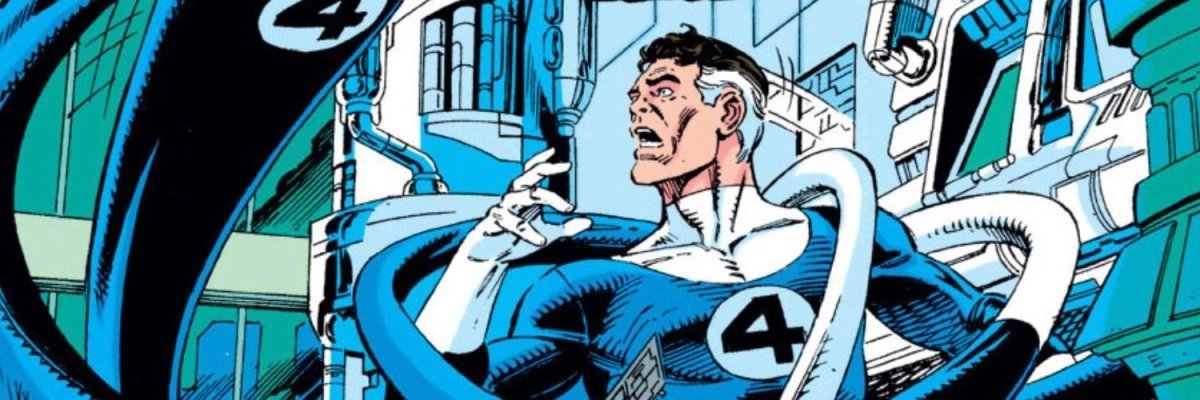
![Fantastic Four By Jonathan Hickman Omnibus Vol. 1 HC Davis Final Issue Cover [New Printing, DM Only] - Walt's Comic Shop](http://waltscomicshop.com/cdn/shop/products/fantastic-four-by-jonathan-hickman-omnibus-vol-1-hc-davis-final-issue-cover-new-printing-dm-only-273691.jpg?v=1696022447&width=836)
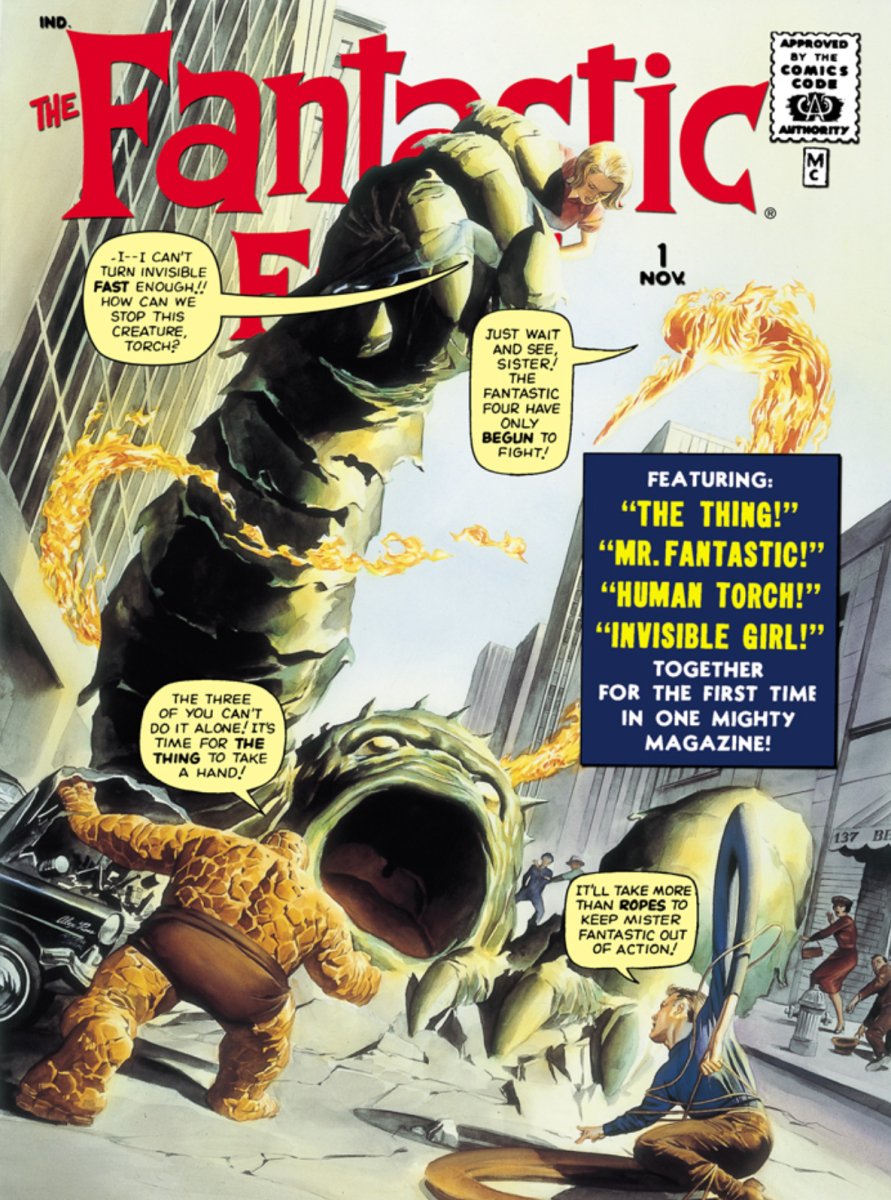
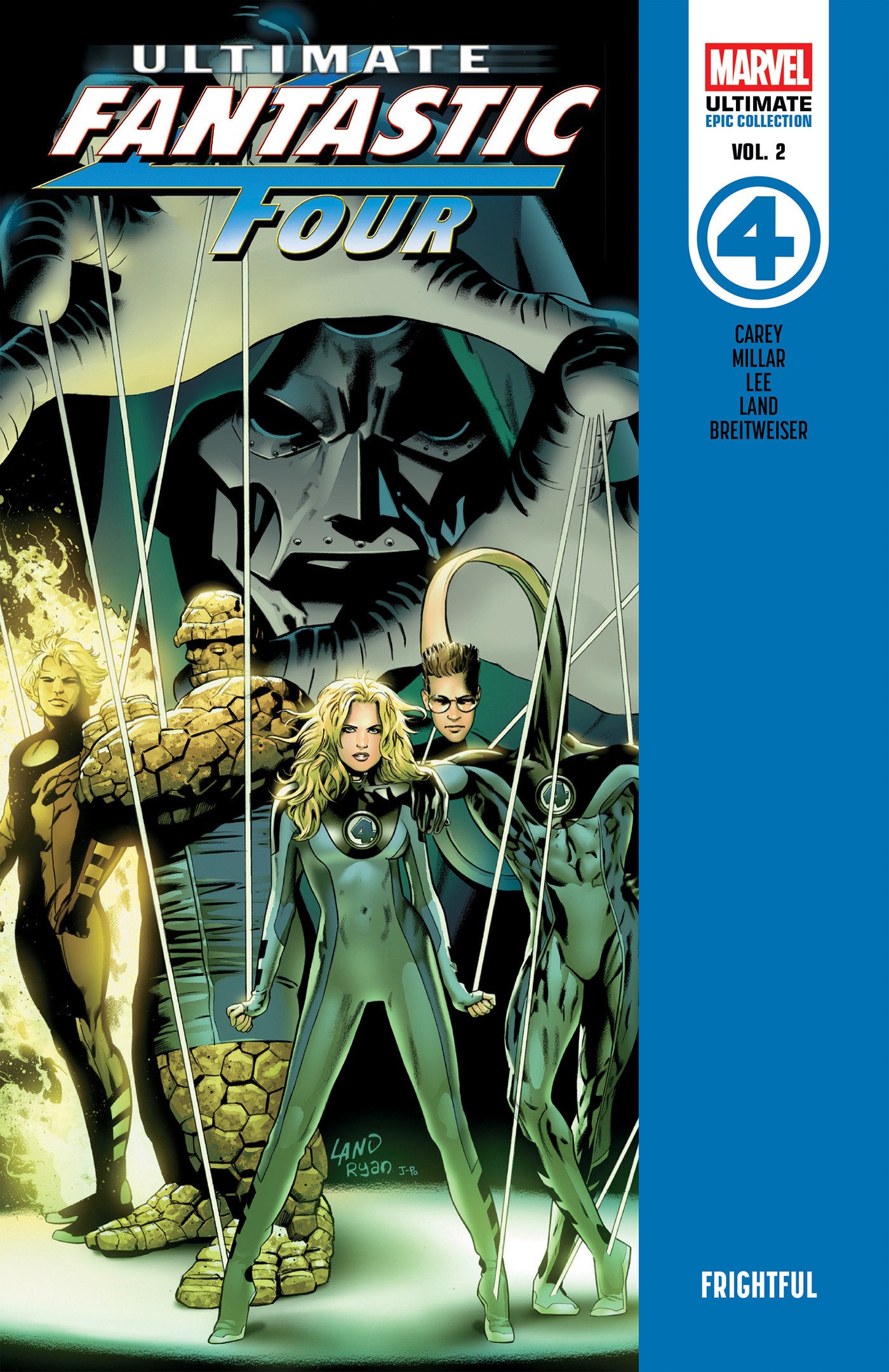







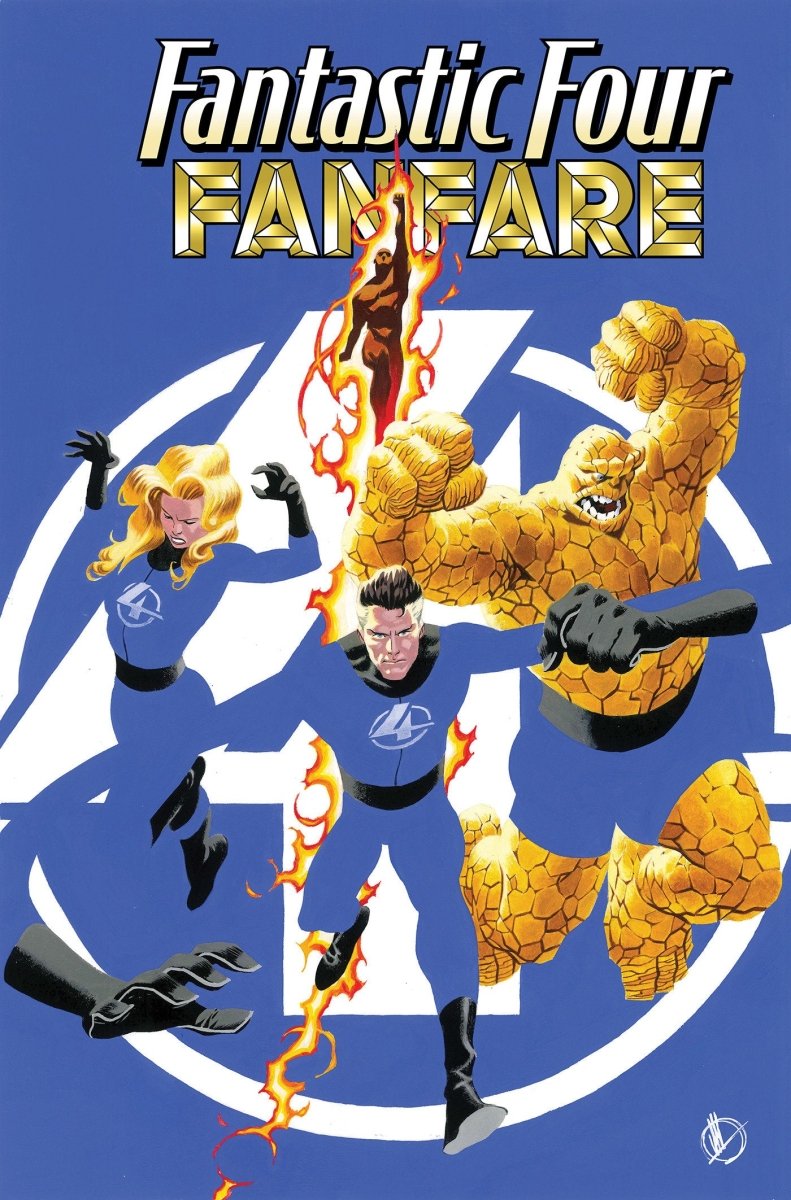
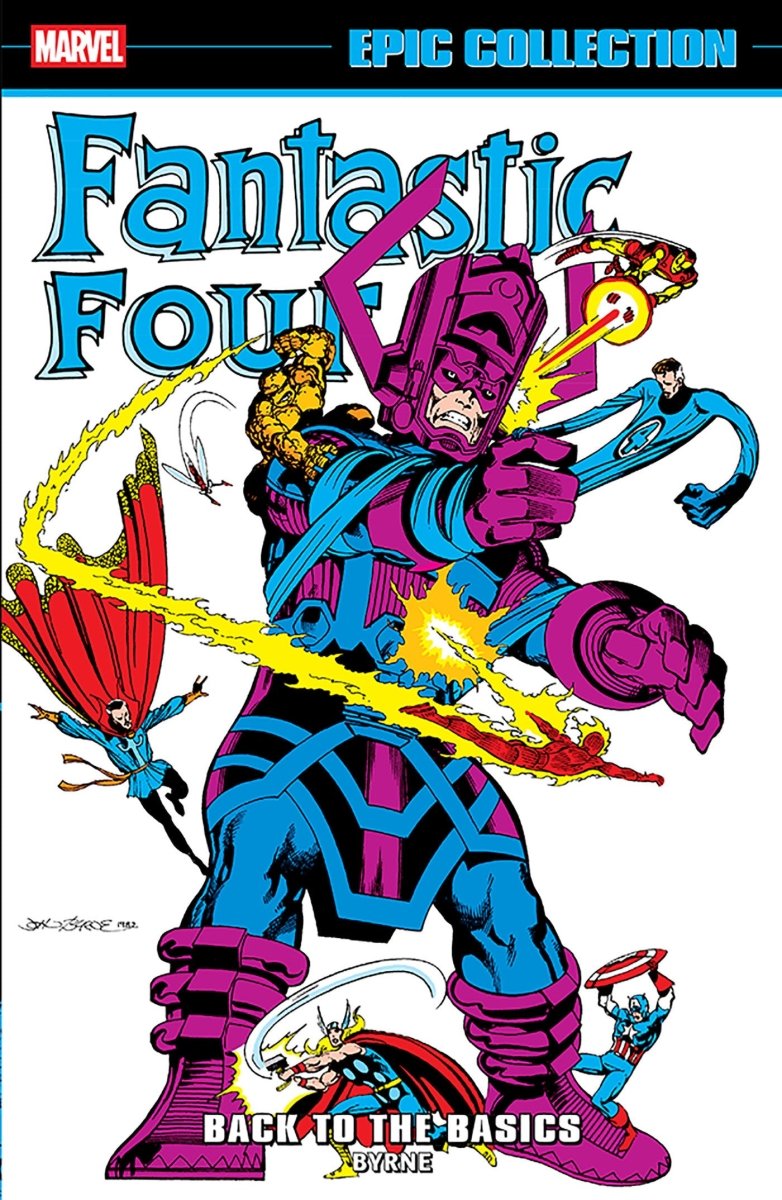
![Fantastic Four 52 Facsimile Edition [New Printing] - Walt's Comic Shop](http://waltscomicshop.com/cdn/shop/files/fantastic-four-52-facsimile-edition-new-printing-6072399.jpg?v=1769765838&width=795)
![Fantastic Four 52 Facsimile Edition Foil Variant [New Printing] - Walt's Comic Shop](http://waltscomicshop.com/cdn/shop/files/fantastic-four-52-facsimile-edition-foil-variant-new-printing-5108661.jpg?v=1769765837&width=795)
